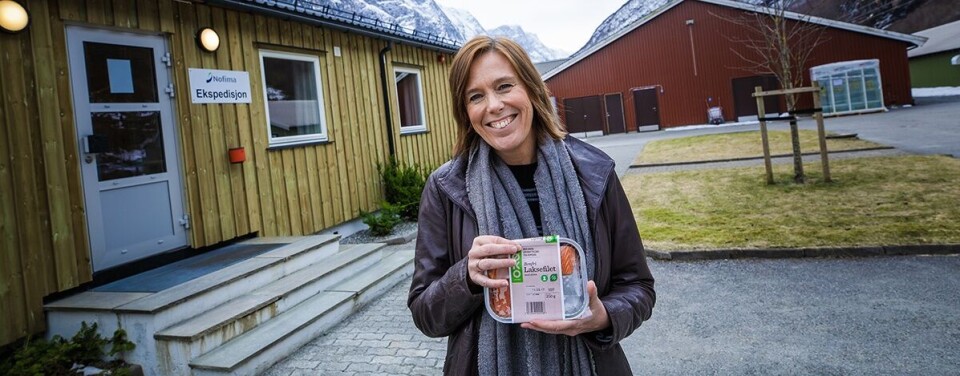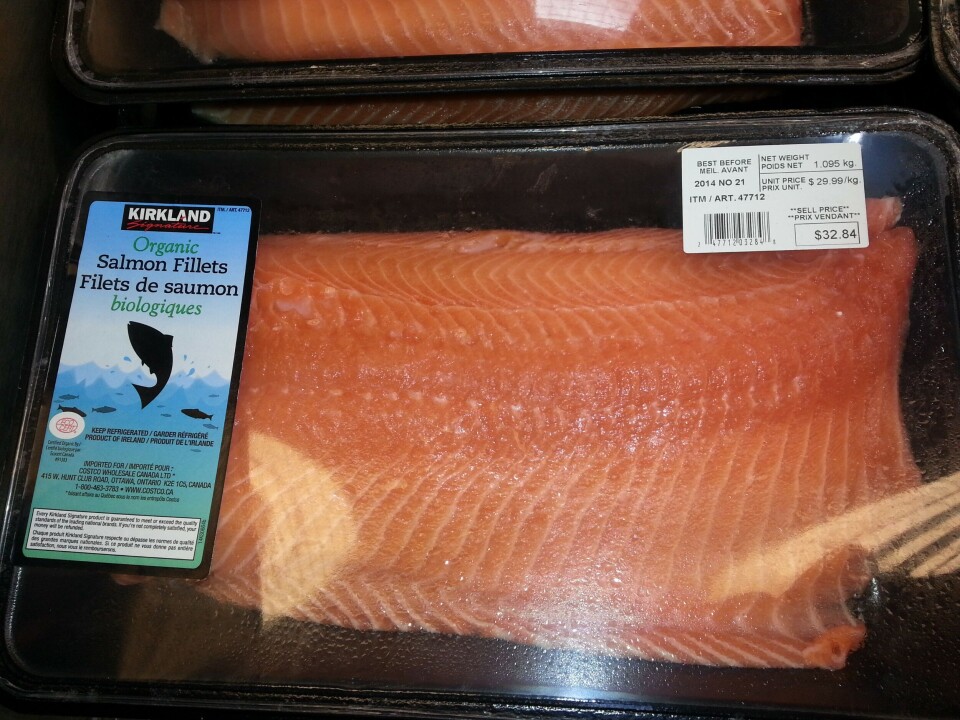
EU rules update could boost organic sector
Updating EU regulations could boost organic aquaculture production, according to a study by scientists.
Åsa Maria O Espmark, senior researcher at Nofima, coordinated the EU project OrAqua, in which researchers from several European nations collaborated to formulate new scientific recommendations for updating current regulations for organic aquaculture in Europe.
As a part of the project, the researchers also conducted a survey on consumer perception and understanding of organic aquaculture.
The project found that shops in Europe still only offer a relatively small selection of organic fish in comparison to organic meat and vegetables. It also found few consumers are familiar with the EU’s own organic label – the Euro Leaf.
“The EU has a strong desire to see organic aquaculture grow,” Espmark says. “This will require regulations that are conducive to this growth. And consumers must be made more aware of what organic farming entails. Many consumers think organic fish is the same thing as wild fish.”
Consumer confidence

In the survey, consumers from the UK, France, Germany and Italy were asked how they would define organic aquaculture. According to Espmark, an overwhelming majority believed ‘organic’ to be the same as ‘natural’, which is not in line with regulations.
“If the consumption of organic fish and seafood is to increase, it is essential for consumers to feel confident that production adheres to regulations in line with organic values, as well as laws on animal welfare and health.”
The consumer survey also shows considerable variation between the different EU countries.
“For instance, German consumers have the most positive view of organic farming and are the most environmentally conscious,” says Espmark. “There is greater focus on animal welfare in Germany than there is in, for example, the UK, Italy or France. Some focus on packaging materials. But in countries that consume a lot of carp – a fish that is produced in an environment very similar to the carp’s natural habitat – consumers attach great importance to what is ‘natural’. But in the regulation, ‘natural’ equates to the comparability between natural habitats and the environmental conditions at the fish farm. It can never be identical to nature."
Norwegian potential
According to the researcher, Norway has significant potential for improvement. Despite the country’s large aquaculture industry, there are only a few organic producers. This is partly due to higher production costs – organic fish production is around 30 per cent more expensive than conventional production. And although the product fetches a higher price, the varied and complex regulations currently in place have discouraged investment.
In OrAqua, researchers focused on the farming of all commercial European species of fish, molluscs, crustaceans and seaweed/kelp. Farmed fish species included salmon, trout and sea bream. Espmark reveals that major disparity exists with regard to applicable rules for the different species in terms of breeding, genetics, slaughtering, etc. For example, there is a regulation which applies solely to prawn and shrimp.
She says it was important to incorporate organic principles in the recommendations, but stresses that some exceptions are completely unavoidable.
“We need to acknowledge that some things are just not possible. For example, it is important that organic production contains nothing artificial, while in fish farming the use of nutritional supplements – such as amino acids produced by fermentation – is absolutely necessary. The health and welfare of the fish must come first,” says Espmark.
Industry opposition
Water oxygenation is not permitted in organic aquaculture, which limits fish density and results in lower production. Water recycling is likewise not permitted based on the regulations.
Espmark explains that there are demands for organic production to be based solely on fish stock and biological materials with an organic origin. But this is being met with opposition from several parts of the industry as it will result in substantial changes for many of those involved.
“We recommend dispensation in this area,” says the researcher. “Since the goal is to increase the proportion of organic farming, a proscription of this sort is counteractive.”






















































